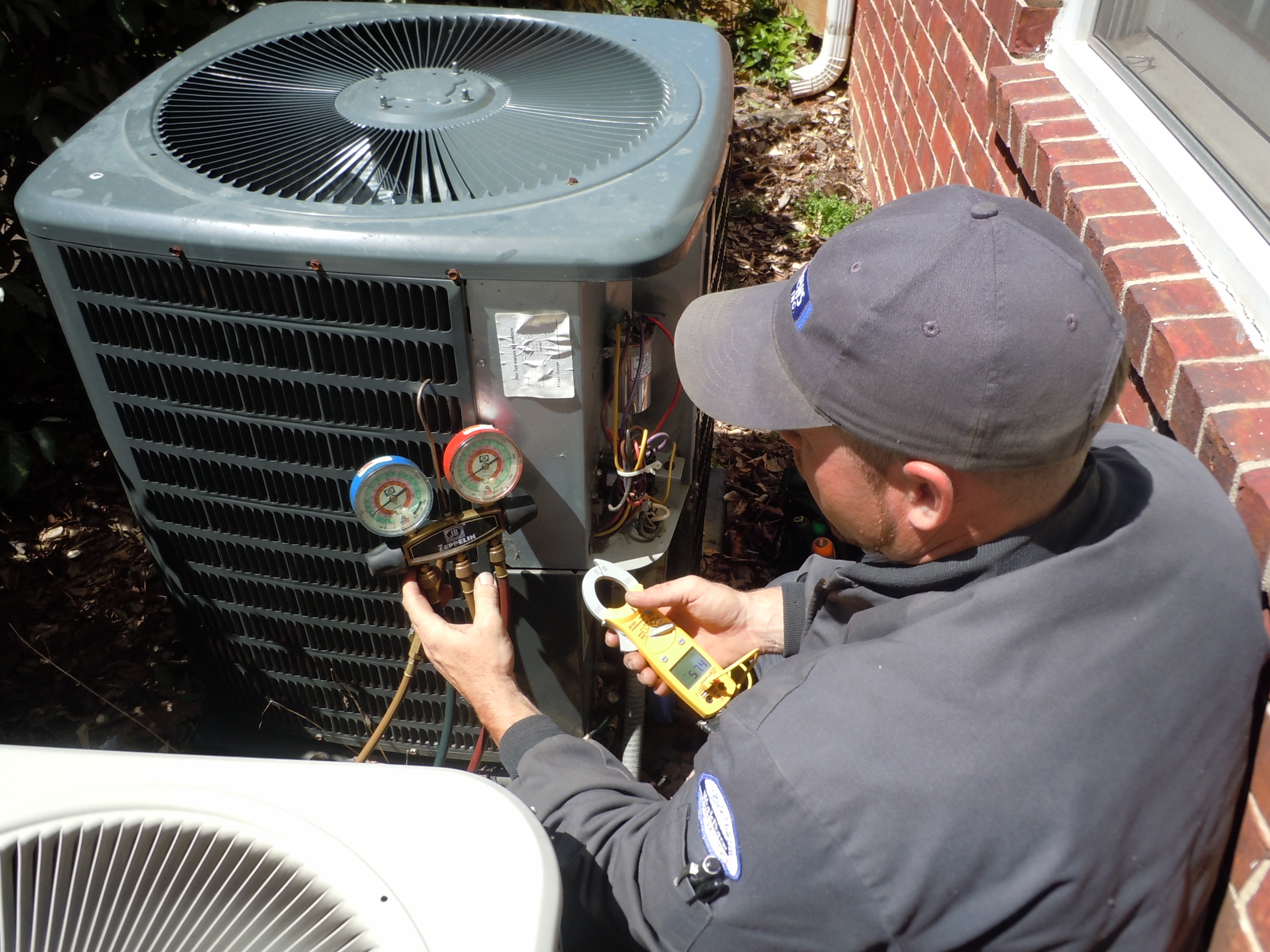Heating, commonly known as HVAC, plays a critical role in maintaining pleasant indoor environments in both residential and office spaces. As you walk through any workspace, you might not think twice about the systems working quietly behind the curtains to ensure that the air is at a pleasant temperature and purity. However, grasping the principles of thermodynamics that govern these systems can greatly enhance our capacity to manage them properly.
In this resource, we will delve into the science of HVAC, uncovering how these systems operate and why they are essential. From AC company for newcomers to tips on optimal maintenance and energy usage, we will review various aspects of HVAC systems. Whether you're planning an upgrade, looking to boost indoor air quality, or simply wanting to lower your energy bills, this text will provide the fundamental knowledge you need to make informed decisions about your heating and cooling systems.
Grasping HVAC Systems
Heating, Ventilation, Air Conditioning, and Air Conditioning , often referred to as HVAC, is an essential system employed for providing a comfortable atmosphere in interior spaces. At its foundation, an HVAC system works by controlling the thermal conditions, humidity, and air standards of areas in residences and industrial structures. It does this through a series of linked elements that perform the necessary functions of warmth generation, chilling, and air circulation. Whether it’s a home setting or a big office building, comprehending how these mechanisms function is crucial for efficient temperature regulation.
The primary components of an HVAC system consist of the heat source, cooling mechanism, ventilation system, and the thermostat. Heating can come from various methods, including heat sources, heat pumps, or thermal vessels, which create heat during frigid months. For cooling, AC systems or systems like heat pumps are used to extract heat from indoor environment, creating a refreshing atmosphere in the hot season. Ventilation plays a critical function in ensuring clean air flows through the location, assisting to sustain breathability and get rid of floating contaminants.
Additionally, appropriate upkeep is essential to guaranteeing HVAC installations work efficiently and last longer. Regular inspections can detect typical concerns such as blocked filters or coolant losses before they escalate into more serious problems. Grasping how these mechanisms work not only enables homeowners and corporate leaders make informed decisions about use and care but also equips them to establish pleasant residential and professional atmospheres year-round. spintax ### Common HVAC Issues and Remedies
Property owners often face a range of HVAC issues that can disrupt convenience and efficiency. One common issue is insufficient heating or cooling. This can occur due to a faulty thermostat, blocked ducts, or low refrigerant levels. To resolve this problem, start by verifying the thermostat settings and replacing batteries if necessary. Next, examine and clean air filters and ensure that vents are unobstructed. If problems persist, it may be required to call a qualified technician to check for refrigerant leaks or system malfunctions.
Another frequent concern is unwanted noise coming from the HVAC system. Noises like clattering, creaking, or hissing can suggest various problems, from wiggly components to failing motors. Homeowners should first examine the outside unit for any debris that might be causing vibrations and make sure all screws and fasteners are secure. If the noise is intense or continuous, it is recommended to seek professional help to identify and resolve the underlying problem, as ignoring it can lead to more significant damage.

Finally, subpar indoor air quality is an issue that many do not recognize as directly connected to HVAC systems. Problems such as dust buildup and allergens can stem from dirty air filters or poor ventilation. To improve air quality, regular maintenance is crucial, including regular filter changes and duct cleaning. Installing air purifiers and selecting the right filters for your system can greatly enhance indoor air quality and overall well-being in the home.
Energy Effectiveness and Advancements in HVAC
The HVAC industry has experienced major advancements in energy efficiency, primarily due to the rising requirement for sustainable options. Modern units are engineered to maximize energy consumption while preserving comfort in residential spaces and commercial buildings. Innovations such as variable speed motors, sectioned heating and cooling, and sophisticated heat exchangers allow HVAC units to function more efficiently, reducing energy consumption and lowering electricity expenses.
Intelligent automation implementation is another critical innovation driving energy efficiency in HVAC units. Smart thermostats and home management technologies provide homeowners with superior control over their heating and cooling preferences. These devices can adapt to occupant behaviors, adjust settings automatically based on presence, and provide real-time energy consumption information, all contributing to a more optimized HVAC operation. As smart devices continue to improve, they will take an ever more critical role in energy management.
Additionally, renewable energy sources, such as solar-powered HVAC systems, are changing the industry. These units harness solar energy to reduce reliance on conventional power sources, offering both ecological benefits and cost savings. Geothermal heating and cooling represents another novel solution, utilizing the earth's stable heat to provide effective environmental regulation. As these solutions become more available, residents and companies can make educated choices that align with their dedication to sustainability and energy efficiency.
